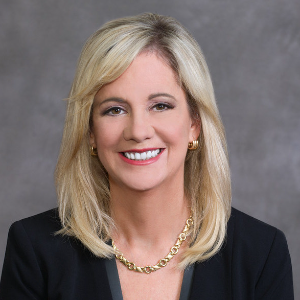Abstract:
The COVID-19 pandemic has driven unprecedented changes around the world and in our industry. It has impacted our patients, our treatment, and us, personally and professionally. History is clear – there are significant long-term effects seen from any major crisis, whether a natural disaster, tragic event, or pandemic. For example, from low birth weight to an “epidemic of mistrust”, it’s estimated that the impact from the 1918 pandemic was not fully realized till more than 60 years later. As leaders, we must be aware of the long-term sequela we can expect and prepare to navigate the challenges and help our colleagues, patients, and communities. This presentation will briefly review what we know from other traumatic events and pandemics and what we we’ve seen with the Covid-19 pandemic to identify what we can anticipate – in the next year as well as the next decade. We will then look at the lessons learned (or not) from prior experiences and responses and identify how we can lead the way in preparing for and addressing these long-term effects. Approaches and resources covered will include looking at the role of critical incident stress debriefing, coping with ambiguous loss and disenfranchised grief, addressing the effects of social distancing, the psychological impacts seen in “long-haulers,” as well as the rapid rise documented in symptoms of fear, anxiety, and depression. We will also examine ways to expand training and services we can deliver to those struggling with these issues and provide resources for further training.
Audience Take Away:
- The attendee will be able to identify the long-term societal, professional, and personal symptoms and struggles we can expect resulting from the Covid-19 pandemic based on information from prior events.
- The learner will be able to describe the roles of disenfranchised grief, ambiguous loss, and social distancing in the increases in anxiety and depression.
- The participant will be able to identify resources for additional training for pandemic-related issues such as critical incident stress debriefing, treating ambiguous loss and disenfranchised grief.
Biography:
Deni Carise, Ph.D. is a Clinical Psychologist and part of the recovery community for over 35 years. She is a founder and Chief Science Officer of Recovery Centers of America (RCA).
RCA treatment and recovery campuses include detoxification, residential, partial hospital, intensive and traditional outpatient, and family services, all available on one campus. RCA has 9 campuses, multiple, local satellite outpatient programs and three opioid treatment programs.
Deni has held similar positions at CRC Health Group, providing behavioral health services to more than 42,000 men, women and teens every day at more than 140 programs in 33 states and Phoenix House, a nonprofit substance abuse treatment provider with over 100 programs in 10 states where Dr Carise developed national standards for clinical care, Clinical Toolkits for over 30 evidence-based practices, and helped usher in a new era of care to position the company to successfully address changes secondary to healthcare reform. Dr Carise was also Chief Clinical Advisor for Sierra Tucson, a premier facility treating substance abuse, pain, mood, eating and trauma disorders.
Dr Carise was an NIH-funded scientist and Director of the Treatment Systems Section at Treatment Research Institute. At TRI from 1994 to 2010, she made significant advances in the quality of substance abuse treatment through the development, application, and research of new interventions, systems, and technologies through receipt of numerous NIH and other federal grants. She has published over 100 articles, books, and chapters.
Dr Carise is currently an Adjunct Assistant Professor at the University of Pennsylvania, Perelman School of Medicine (since 1997). She has been affiliated with UPENN since completing a NIDA Post-Doctoral fellowship at the Center for Studies of Addiction in the Department of Psychiatry from 1994-1996. She earned both her bachelor’s degree and Doctorate in Clinical Psychology from Drexel/ Hahnemann University, she interned in Baltimore at Homewood (part of the Johns Hopkins Health system) and Union Memorial hospitals in behavioral medicine.
She has worked extensively internationally, with treatment providers in Nigeria, Mexico, Thailand, Egypt, Greece, Singapore, Brazil, and China and numerous other countries to help develop national systems that integrate scientifically-validated tools into clinical treatment delivery.
Committed to the accurate portrayal of addiction, treatment, and recovery in the media, Dr. Carise consulted on 2 major films; Martin Scorsese’s Wolf of Wall Street, teaching the lead cast on depicting characters under the influence of cocaine and other drugs, and Sno Babies, out in 2020 working with the cast, director and producers on the portrayal of heroin addiction, recovery and drug culture. She is also featured in numerous national news media segments (Nightline, MSNBC, Fox News, ABC, CBS and NBS evening news, Access Hollywood, the Today Show),
and has also been quoted in popular newsprint media such as US News and World Report, Fox News, Wall Street Journal, and others. Dr. Carise has presented over 200 lectures by invitation (approximately 35 internationally). She is also a frequent blogger on Huffington Post (http://www.huffingtonpost.com/deni-carise) and is an active voice on LinkedIn, Facebook Live, and Twitter focusing on topics including treatment, recovery, prescription drug abuse, the media’s portrayal of drug problems, and emerging drug trends.




